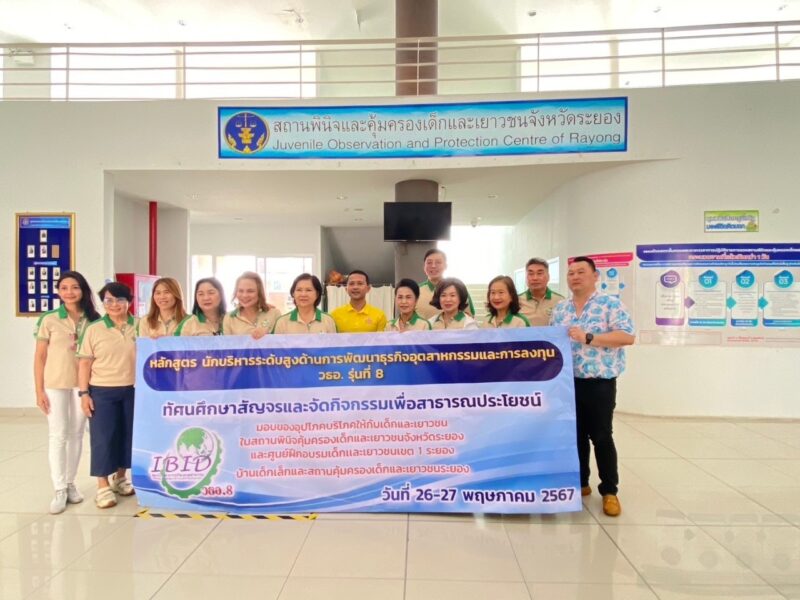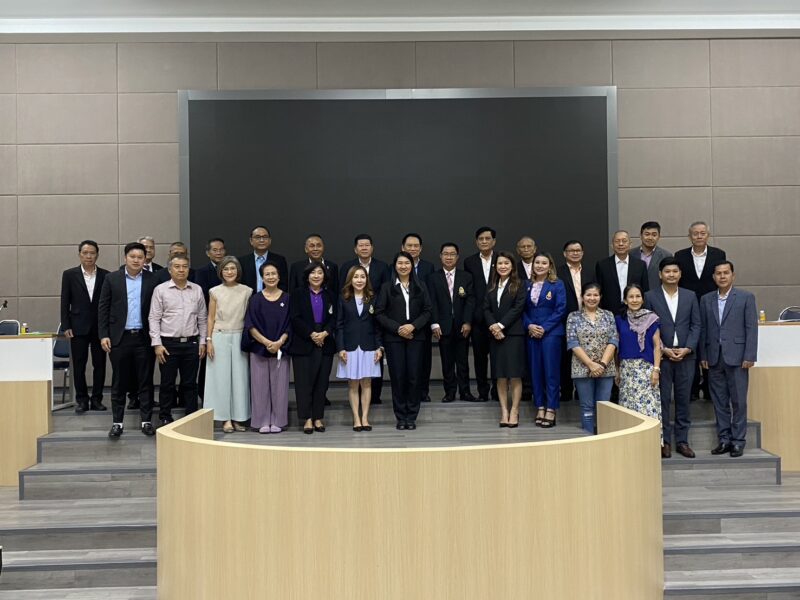
Somkrit Krishnamra
Partner, Risk Advisory Services, FSI Country Leader
Narain Chutijirawong
Director, Business Development
Deloitte Thailand
Traditional financial institutions are confronted with several questions in the face of Fintech disruption. How will Fintech impact my organization? What and how we prepare for this change? Fintech has been a phenomenon and impact to all countries for over the years, in fact, its effect spread out all various stakeholders from consumer to business to regulator.
From Singapore FinTech festival 2018 – the world largest Fintech event has been annually held in November, this year is in its third year which has been tremendously successful. There were over 40,000 participants from over 100 countries around the globe, and more than 300 exhibitors from almost key stakeholders in Fintech, ranging from financial services firms – local, regional and global, associations, government regulators, international service and standard providers. Certainly, Fintech firms itself also attended both as participants and exhibitors, interestingly the vast variety of the Fintech technologies and applications from all over the world, as well as those enabling technology and big technology firms.
There are many prominent key speakers addressing various interesting topics which could open up audiences’ perspective and perhaps even inspire new thoughts or ideas. Participants also learned how each country embrace and develop fintech to help improve their country competitiveness as well as closing the gap of financial inequality.
Singapore Fintech Initiatives
Ravi Menon – Managing Director of Monetary authority of Singapore (MAS) shared a few Singapore initiatives for example, SGQR – the standardized QR code which unify the many barcodes of different financial and non-financial services into one single QR code. This help simplify and increase adoption of merchant as now the sellers will just need to put only one QR code in front of their shop for customer to scan. Singapore PayNow, similar to Thailand PromptPay, which help P2P remittance, by connecting either email or mobile phone number. Lastly, Project Ubin that allow local banks conduct domestic inter bank using Distributed Ledge Technology (DLT) or blockchain without going through MAS.
CEO and Expert Opinions in Fintech Impact and its Future
Most of CEO from financial institutions agreed that Fintech created both challenges and opportunities for incumbent firms to improve customer experiences by creating and facilitating better, faster and cheaper interaction and transaction which ranging from providing customer support, advising financial services or products and completing business transactions. Especially for some underserve or unmet customers which can be consumer who live in a rural area, as in the past they need to travel for hours to just doing basic financial transaction; now these can be done via mobile phone instead. Similarly, those micro or small businesses that might be underserved, for bank to provide the financial services due to low margin, Fintech can help in area such as onboarding, alternative credit scoring and financing.
One most cited question in many sessions is; at last, who is the winner? Is it incumbent bank, Fintech or big tech. It can be roughly concluded as agreed by many experts that there will be no one single winner or ‘winner takes all’ in this case. In fact, many large international bank argued that they view Fintech as more business partners than competitors, similar to big tech as enabling technology or platform partners.
The 5 Key Technologies in Fintech
When focus on technology underlying fintech, there are 5 key technologies that has been in the focal point of discussion by most speakers as well as demonstrated by exhibitors throughout the event, which are; Blockchain, Artificial Intelligence (AI), Security, Internet of Things (IoT) and Cloud. To help remember, it can be rearranged as “B.A.S.I.C” where B is stands for blockchain, A is AI, S is security, I is IoT and C is for cloud.
Blockchain or Distributed ledger technology (DLT) might be quite difficult to understand and implement but still, a large number of organizations start exploring and finding the real use case. For example, in Switzerland, Swiss stock exchange (SIX) will be launching an end-to-end settlement solution based on DLT in mid of 2019 as SIX Digital Exchange or SDX focus on digitized assets, not trading cryptocurrencies. Smart contract, one of the highly promising Blockchain application, has been implemented at least in pilot phase by various firms and not only in financial services.
IoT, security and cloud are well defined and widely implemented already in most financial institutions. Interestingly, one IoT use case in insurance firm has been implemented by combining using sensor device and drone in claim assessment and verification by assisting in-field agent to perform these tasks in such a faster and safer approach (in some area, espl construction site, using drone to survey is safer than by human).
One last of the 5 key technologies and also most discussed and mentioned is AI. In fact, many business leaders in the event unanimously agree that AI is actually underrated, meaning that, they see much higher potential impact of AI to business than it is currently perceived.
One of the global research conducted by World Economic Forum and Deloitte Consulting with half-dozen global workshops and more than 200 interviews with experts on AI has been discussed, here is a few key takeaways from this research.
AI: Deliver new kinds of value – Pervasive Impact
Artificial intelligence is a suite of technologies, enabled by adaptive predictive power and exhibiting some degree of autonomous learning, that dramatically advance our ability to:
Recognize and detect pattern
Anticipate and forecast future events
Create rule to optimize outcome
Make good decisions by apply rules
Communicate with other people thru digital or analog mediums.
In fact, many applications of AI-driven technology use a combination of these abilities. AI is enabling financial institutions of every kind to drive new efficiencies and deliver new kinds of value as range from ‘Doing the same thing, better’ to ‘Doing something radically different’
For example, in investment management, firm can use AI to help seamlessly account setup and acquire new customer for faster and easier services. Or move to smarter decision making by equip financial advisor with highly personalized customer insights which collect and analyze individual customer data from various sources. This can create ‘Self-driving finance’ in the future, when financial advice will be increasingly personalized with continuously optimized algorithms and be offered to customer without human intervention. In this reimagined experience, consumers interact with an AI-based agent for advice and product customization. The self-driving agent offers guidance on complex decisions such as homebuying, retirement planning, or corporate financing. At the same time, it automates routine transactions such as bill payment and refinancing.
In conclusion, the impact of AI to financial institution as well as regulator and consumer or society as a whole can be summarized as following:
Deliver new kinds of value. Product and service innovation will lead to greater financial inclusion and a sleeker, more personalized customer experience.
Reshape operating models. Financial institutions will become leaner, highly networked, and more specialized. They’ll also become more dependent on the capabilities of large technology players.
Upend competitive dynamics. Data sharing will become critical to competitive success. The advantage will go to first movers and large-scale players in an increasingly bifurcated market.
Take public policy into uncharted territory. AI will raise questions that challenge government and society, prompting the need for a new set of norms to protect humans, regulate machines, and remake the financial infrastructure.
The future of financial services lies in its ability to fully benefit from new technologies. It’s a journey subject to the headwinds and tailwinds of economic, social, and political change. It’s also a journey no firm should take on its own. These 5 key technologies will make front and back office operations look radically different, create major shifts in the structure and regulation of financial markets, and raise critical challenges for society to resolve. Nothing less than a collaborative effort among all key stakeholders – financial institutions, Fintech, associations and regulators will triumph over these challenges and unlock the benefits for the best interests of business and society.
Deloitte refers to one or more of Deloitte Touche Tohmatsu Limited (“DTTL”), its global network of member firms, and their related entities. DTTL (also referred to as “Deloitte Global”) and each of its member firms are legally separate and independent entities. DTTL does not provide services to clients. Please see www.deloitte.com/about to learn more.
Deloitte is a leading global provider of audit and assurance, consulting, financial advisory, risk advisory, tax and related services. Our network of member firms in more than 150 countries and territories serves four out of five Fortune Global 500® companies. Learn how Deloitte’s approximately 264,000 people make an impact that matters at www.deloitte.com.
About Deloitte Southeast Asia
Deloitte Southeast Asia Ltd – a member firm of Deloitte Touche Tohmatsu Limited comprising Deloitte practices operating in Brunei, Cambodia, Guam, Indonesia, Lao PDR, Malaysia, Myanmar, Philippines, Singapore, Thailand and Vietnam – was established to deliver measurable value to the particular demands of increasingly intra-regional and fast growing companies and enterprises.
Comprising approximately 340 partners and 8,800 professionals in 25 office locations, the subsidiaries and affiliates of Deloitte Southeast Asia Ltd combine their technical expertise and deep industry knowledge to deliver consistent high quality services to companies in the region.
All services are provided through the individual country practices, their subsidiaries and affiliates which are separate and independent legal entities.
About Deloitte Thailand
In Thailand, services are provided by Deloitte Touche Tohmatsu Jaiyos Co., Ltd. and its subsidiaries and affiliates.
© 2018 Deloitte Touche Tohmatsu Jaiyos Co., Ltd.






